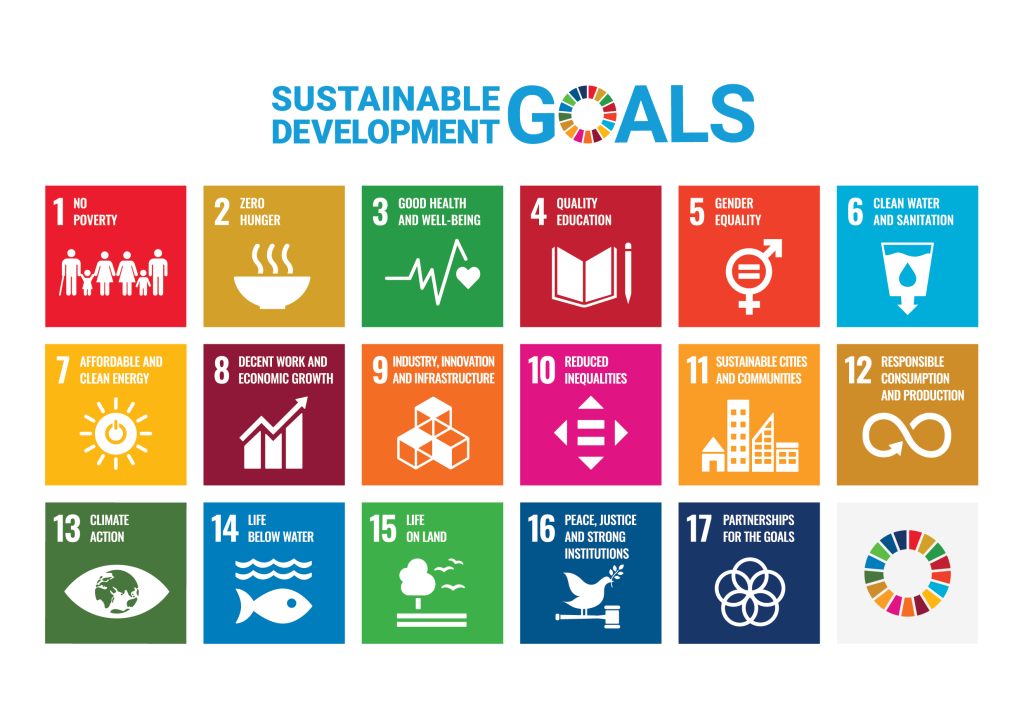
Unlocking the power of student career agency
January 31, 2023
Top 10: Advancing career development in Canada
January 31, 2023Leveraging the United Nations Sustainable Development Goals in career development practices
Candy Ho

Case in point: in 2021, the Labour Market Information Council and Future Skills Centre reported that only 19% of Canadians aged 25-64 have accessed career services within the past five years – a drastically low rate compared to other OECD countries. That said, 95% of those who accessed career guidance reported positive changes from their experience.
On the employer front, according to CERIC’s National Business Survey, only 12% of executives surveyed had worked with career development professionals (CDPs), while 45% reported they were unaware of CDPs prior to the survey. Yet, 73% of executives believe employers have a responsibility to offer career management programs, citing needs in employee training, upskilling and career goal-setting.
These surveys demonstrate that career development is somewhat of a “secret” superpower; only when people uncover it does its potential get unleashed. It behooves us all to work toward making this superpower the worst-kept secret, so that career development becomes mainstream in the fabric of life.
Engaging more people in career development is crucial during this time of chaotic change, which has left many people struggling to adapt and experiencing anxiety and overwhelm. Simultaneously, jobseekers and career development practitioners are seeking to make meaning of their lives and to contribute toward some form of social betterment.

sdgs.un.org/goals
One framework that we can apply to career development to help individuals find purpose is the United Nations Sustainable Development Goals. The UNSDGs are “an urgent call for action by all countries…they recognize that ending poverty and other deprivations must go hand-in-hand with strategies that improve health and education, reduce inequality, and spur economic growth – all while tackling climate change and working to preserve our oceans and forests” (sdgs.un.org/goals).
The 17 SDGs, adopted by all 193 UN member states including Canada in 2015, are interconnected. Of note is SDG 17, Partnerships for the Goals, emphasizing the idea that everyone plays a role in helping to achieve the other 16 goals – including CDPs. I firmly believe that our field has a unique ability to serve as a critical conduit between the SDGs and individuals’ career development.
More from Careering
Canada’s career development profession – on the cusp of greatness
Building upskilling pathways for the future
The buck starts here: Mental health, career development and your practice
The SDGs provide a framework to identify challenge-based career opportunities, which can help give people a sense of direction and purpose. Instead of having clients first identify roles and jobs they wish to apply to, we can have them begin by considering a local or global problem they want to help address. I do this in my senior career capstone course, where students “declare their challenge” by identifying one or more SDGs they could see themselves helping advance. Throughout the semester, they derive insights on how they can meaningfully contribute their knowledge, skills and talents to their aspired professional roles.
The SDGs can also help CDPs understand the value of our work in a new and broader way. Students often arrive in my course with narrow professional goals (e.g. “I want to go into law and work my way up to become a law firm partner”). Incorporating the SDGs into the course has expanded their career possibilities. Students now begin by first considering the difference they want to make locally and/or globally, such as reducing inequalities or promoting clean water and sanitation. They reflect on why they feel compelled to make such a difference before they identify possible professional roles that would enable them to take action to advance these goals; connecting the head with the heart, so to speak. Shifting the focus from occupation to purpose recognizes our work as CDPs in helping clients consider what constitutes a meaningful life and what truly matters to them.
Ultimately, the work that we do in career development is about continual reflection, exploration and development of one’s qualities, experiences and skills – and how we see ourselves meaningfully enacting these elements in our life roles. Leveraging global frameworks such as the SDGs can help everyone understand career development in a more tangible way, thus making career development more accessible and more fully realizing the impact and value of our work.
Dr. Candy Ho is the Board Chair of CERIC. She is the inaugural Assistant Professor, Integrative Career and Capstone Learning in the University of the Fraser Valley in British Columbia, Canada. Additionally, she currently holds a one-year appointment as the University Lead, Sustainable Development Goals at Kwantlen Polytechnic University.

